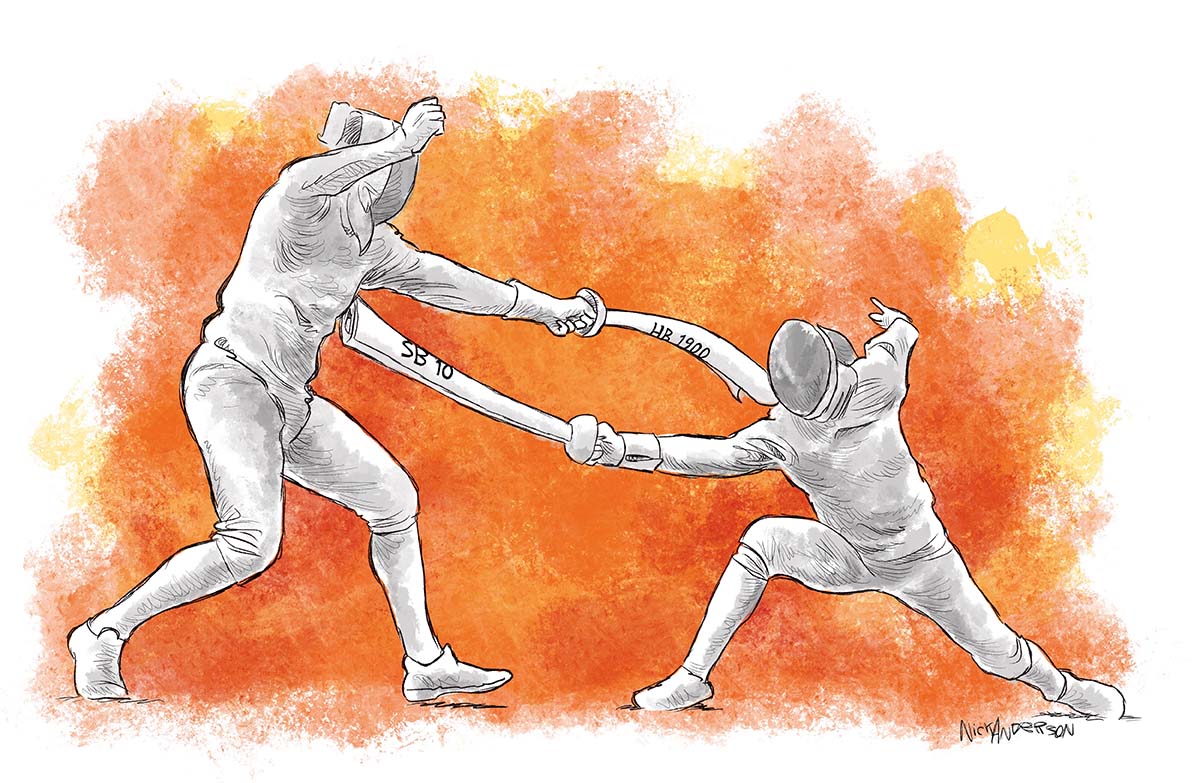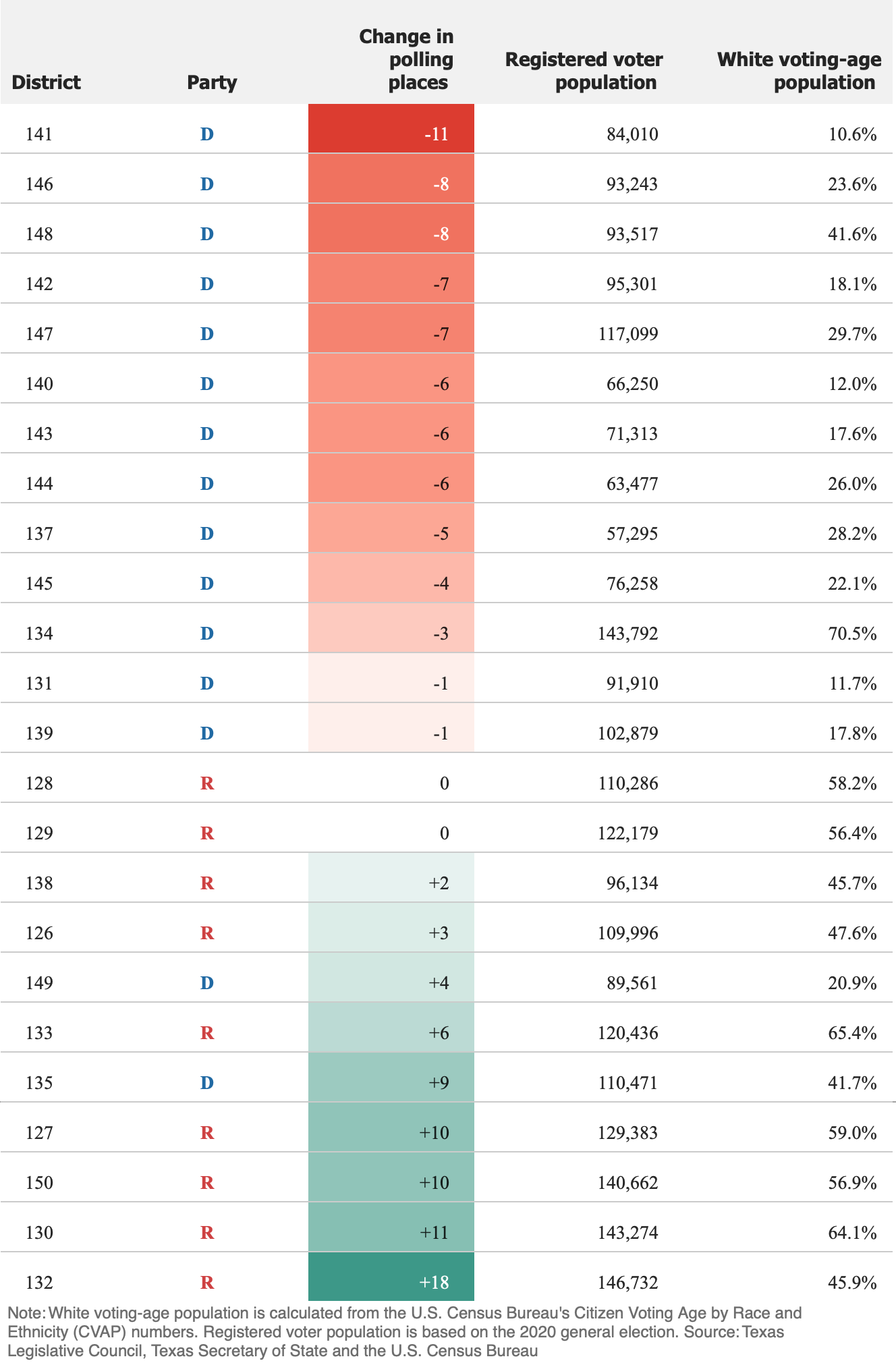Legislative Battles
SB 7: Voting Restrictions

In 2021, there were over 400 bills filed this session that restricted voting rights. The most significant of these was Senate Bill 7 by Senator Bryan Hughes. This legislation targeted Harris County’s drive-through voting by prohibiting tents, parking garages, parking lots or any “similar facility designed primarily for motor vehicles” for voting. The measure also prohibited ballot drop boxes.
The bill completely banned voting from cars unless the voter is “physically unable to enter the polling place” and only allows the voter and someone assisting the voter in the car. The assistant would have also been required to sign forms confirming the voter is unable to enter the polling place and explaining his or her relationship with the voter, why assistance was necessary, and what specific assistance was provided to the voter. The Director for the Mayor’s Office for People with Disabilities, Gabe Cazares, gave testimony on how difficult and suppressive this is for the community, which in Houston is over 215,000 individuals. It would have mandated that all weekday early voting take place between 6 a.m. and 9 p.m., but the draft language would have further limited Sunday early voting to the hours of 1 p.m. and 9 p.m. Many saw this as a deliberate attempt to hinder the after-church, “Souls to the Polls,” get-out-the-vote efforts in Black and Latino communities.
SB 7 would have barred local election officials and voter advocacy groups from distributing mail-in vote applications. It would have barred counties from helping facilitate the distribution of unsolicited ballot requests, therefore preventing them from working with get-out-the-vote groups. It would have granted more power to the attorney general to hunt down suspected fraud cases. It would have also limited mail-in voting to voters who provide medical documentation proving that they cannot vote in-person at a voting center.
How Harris County’s polling place distribution would change under SB 7
All but two state House districts represented by Democrats in Harris County would see a reduction in Election Day polling places under the GOP’s priority voting bill. In most cases, those districts have a far higher share of eligible voters of color than the districts that would gain voting sites.

Voters requesting absentee ballots would have been required to provide their driver’s license number or Social Security number on their request for a ballot and return envelope containing their ballot. A $1,000-a-day fine would have been imposed on local election officials who did not follow prescribed procedures to update their voter rolls, and criminal penalties on election workers who obstruct poll-watchers.
- Those partisan poll-watchers would have been allowed to be “near enough to see and hear” election activity.
On April 5, Mayor Turner invited a diverse group of elected officials, community leaders, and business executives to a press conference to stand in solidarity against SB 7.
- More than 50 individuals and organizations have vowed to fight, including the NAACP, Houston Area Urban League, Houston LGBT Chamber of Commerce, Houston Asian Chamber of Commerce, League of Women Voters Houston, Houston in Action, FIEL, ACLU, Communications Workers of American, IAPAC, Mi Familia Vota, Houston Black Chamber of Commerce, Southwest Pipe Trades Association, National Federation for the Blind of Texas, Houston Hispanic Chamber of Commerce, Anti-Defamation League (ADL), Employment & Training Centers, Inc. and others.
“The right to vote is sacred. In the 1800’s and 1900’s in this country, women, and people of color had to fight to obtain that right to vote,” Mayor Turner said. “In 2021, we find ourselves again fighting bills filed in legislatures across this country that would restrict and suppress the right of people to vote. These bills are Jim Crow 2.0.”
Mayor Turner said he agreed with 72 national Black corporate executives who recently wrote that corporate America should publicly oppose any discriminatory legislation and all measures designed to limit Americans' ability to vote. When it comes to protecting the rights of all Americans to vote, there can be no middle ground.
“Our friends and business leaders cannot be silent out of fear of intimidation by the perpetrators of voter suppression,” said Mayor Turner.
The final version of the legislation was hashed out behind closed doors included many provisions inserted that were not in any previous version of the legislation, including language that would make it easier to overturn an election.
- The Conference Committee Report for SB 7 would have changed the legal standard for overturning an election from “reasonable doubt” to “preponderance of the evidence,” a much lower hurdle to clear.
It would no longer require evidence that fraud actually altered an outcome of a race, but only that enough questionable ballots were cast that could have made a difference.
SB 7 failed in the regular Legislative session when Texas Democrats left the House floor denying the Republicans a quorum less than 90 minutes before sine die.